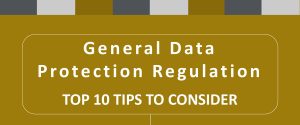
Budget 2018 was delivered by Minister Donohoe in the continuing context of an Irish economy in good shape and with strong and sustainable future growth predicted. However, with potential Brexit headwinds forecast and being mindful of not returning to the days of giveaway budgets (remember them?), he delivered a constructed ‘balancing act’ that didn’t significantly affect many.
So how does this budget affect your disposable income?
The reductions in the rates of the USC will benefit everyone with particular focus on middle incomes. The point at which the marginal tax rate kicks in was increased by €750 to €34,550. For the self-employed, the earned income credit increases from €950 to €1,150.
Pensioners and those in receipt of social welfare payments will also benefit with an increase of €5 from March 2018. The Christmas bonus for social welfare recipients has remained at 85%.
Prescription charges are further reduced to €2 and this charge now applies to medical card holders of all ages.
However, if you are partial to a cigarette whilst sipping your fizzy drink, then prepare from tomorrow to pay an extra 50c on a pack of 20 cigarettes and to start paying Sugar Tax of 20c/30c per litre from April 2018.
Housing and other matters
With the Minister noting the “corrosive impact of homelessness” on the State in his speech, he announced an allocation of €1.8 billion for housing next year, which he said would help to fund the building of 3,800 new social homes next year.
Other measures to increase the supply of housing/land, include the tax deductibility of pre-letting expenses, the reduction of the CGT ‘hold period’ from 7 years to 4 years and the increase vacant site tax rate from 3% to 7%.
However, the rationale of raising the Stamp Duty rate three-fold to 6% on commercial property, apart from funding many other tax cuts/spending increases, appears to fly in the face of the residential property ‘supply measures’.
The Budget also continues the commitment to repair the State’s public services with increases in the number of teachers and guards, and significant additional funding being made available for education and health. The litmus test will be whether anyone will experience a notable improvement in services during 2018.
The tourism sector will continue to benefit from the reduced rate of VAT at 9%. The agri-food sector, in particular, will benefit from the introduction of a Brexit Loan Scheme.
Foreign Direct Investment
The Minister took the opportunity to reaffirm Ireland’s corporation tax rate at 12.5%. This is and will remain the central plank of Ireland’s FDI offering. However, restricting the deduction for capital allowance and interest on Intangible Assets to 80% of relevant income is a backwards step.
Overall, Budget 2018 is the final (Balancing) Act in Ireland achieving a projected deficit by end of 2018 at near 0% of GDP.
It may take you until then though to have worked out if this was a good Budget for you or your business!

Edward Murphy
Partner and Head of Tax Services
edward.murphy@crowleysdk.ie
If you would like further information, please contact our Tax Team.

View the key highlights from Budget 2018

Download a PDF of our Budget 2018 Analysis
 Up to recently, landlords were not entitled to a tax deduction for pre-letting expenses such as mortgage interest, insurance and repairs incurred before the date a property was first let out.
Up to recently, landlords were not entitled to a tax deduction for pre-letting expenses such as mortgage interest, insurance and repairs incurred before the date a property was first let out.
 The Finance Bill 2017 has introduced a tax efficient share option scheme for employees of SMEs. The Finance Bill provides that from 1 January 2018, SMEs in Ireland will be able to grant KEEP (Key Employee Engagement Programme) share options to their employees.
The Finance Bill 2017 has introduced a tax efficient share option scheme for employees of SMEs. The Finance Bill provides that from 1 January 2018, SMEs in Ireland will be able to grant KEEP (Key Employee Engagement Programme) share options to their employees.




